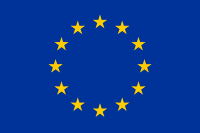#2 Policy Recommendation Area
Empower democratic and community-focused cultural heritage institutions
About this process
This process belongs to Policy Recommendations Toolkit
Empower democratic and community-focused cultural heritage institutions
#2 Policy Recommendation Area
Empower democratic and community-focused cultural heritage institutions
.jpg)
Digital institutional transformation
Change in the mindset of cultural heritage institutions is needed if they are to respond to the current challenges and opportunities related to digital transformation and new ways of empowering various communities. There is a growing need for autonomy and sustainability in the heritage sector, with high demand for new value-based business models for cultural heritage institutions — models that would allow them to find their way in the contemporary, community-focused, sustainable and ethical realm. Digital is a transversal theme that is part of all cultural heritage institution operations, and is not limited to external communication or marketing activities. It is an integral part of preservation and exploitation services, including community-based services. New skills and self-positioning, understanding of the tasks and the organisation’s mission online are crucial to efficiently execute the CHI’s role, also by building, maintaining and developing relations with current and new communities and society.
Focus on communitiesx
Cultural heritage institutions shouldn’t attempt to “be everything”: they need to adopt a clear focus, also to allow them to become a part of innovation processes. They should be able to embrace a tailored digital transformation process based on their core mission and available resources, targeting communities relevant to them. They need to recognise that, by definition, the digital space, in its plurality, is not just a marketplace, but the whole society experiencing a digital transformation.
To achieve this, CHIs need to be able to experiment, take on risks and self-assess their impact. There is also a need for community-focused impact assessment mechanisms within cultural heritage institutions, verifying their relationship with communities. Furthermore, their founding and organising entities need to acknowledge the need for implementing new evaluation mechanisms based on values.
Copyright enhancing public mission of CHIs
Copyright restricts access to, and the sharing of, cultural heritage. Given their special public mission, cultural heritage institutions must facilitate an understanding of public reuse conditions which includes making use of clear and understandable rules (e.g. in the case of faithful reproductions of public domain works), copyright terms, and licensing models, such as Creative Commons licences and tools, as well as Rights Statements, which will in turn help to maintain interoperable and multilingual standards that respond to the needs of CHIs and relevant communities. However, in the long term, a new policy — preferably a reform of copyright law — must be introduced that will allow CHIs to fully embrace their public mission and bring down copyright barriers to access and reuse of digital cultural heritage.
Adequate financial support
In order for cultural heritage institutions to remain faithful to their public mission in the digital realm and to build upon the potential of the interoperable digital public space, additional support and resources need to be secured. It is crucial to ensure organisations have the capacity and expertise to develop their digital maturity, to support digital innovation, and to provide sustainable services and centres of research and excellence. Only with continuous and long-term financial backing and steered transition, supported by public bodies and other funders, will their actions be built on a social impact-based value chain ensuring that they are relevant to society.
Operationalisation of recommendation #2:
Heritage Networks Cultural Heritage Institutions
Policy makers at the EU and national level Heritage Networks Cultural Heritage Institutions Other stakeholders
2.3 Develop frameworks for digital community engagement





Share: